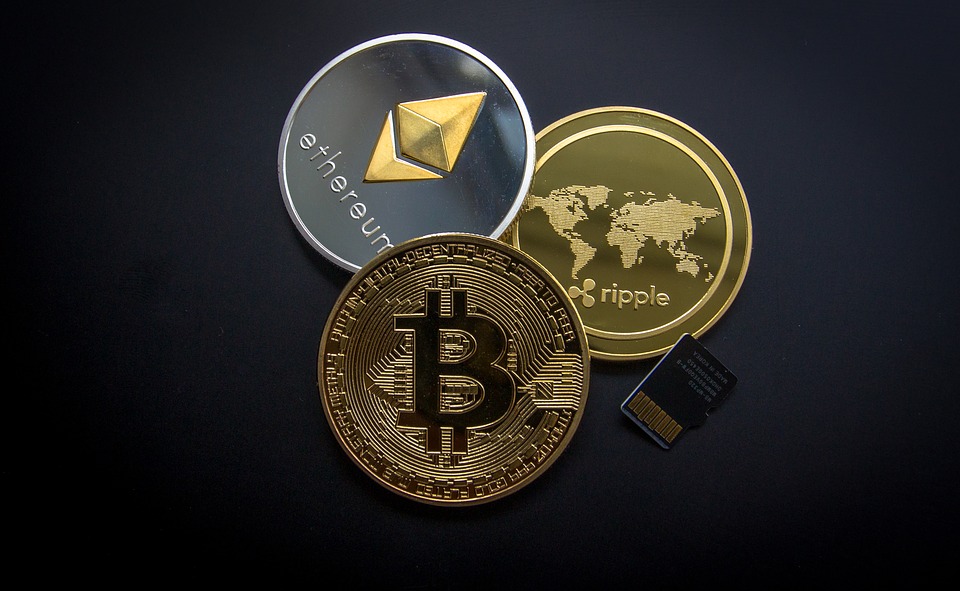Why Nouriel Roubini Is Wrong About Cryptocurrencies
This past week, esteemed economist Nouriel Roubini testified about cryptocurrencies before the United States Senate’s banking committee, presenting an extremely dim view of the crypto-ecosystem.
While nobody can question Roubini’s expertise when it comes to economics or understanding bubbles, it should be noted that he has been a strong opponent of Bitcoin for years – folks who ignored his advice not to purchase Bitcoin half a decade ago have made astronomical returns on their investments. Furthermore, there were various elements of Roubini’s statement last week regarding cryptos that seemed questionable; I thought that I should discuss several with my readers, especially as some folks have expressed to me in recent days an increased queasiness about cryptocurrencies as a result of a notable economist expressing such an adverse view after prices have begun to fall.
After introducing himself, Roubini opened his testimony by stating that “It is clear by now that Bitcoin and other cryptocurrencies represent the mother of all bubbles.” Roubini’s leading off with this statement set off red flags in my mind: The total market cap of all cryptocurrency today is under 1/4 of a trillion dollars, and, at its peak, the cap was still around $800 billion. Even if every cryptocurrency were to suddenly become totally worthless, the total loss in value – worldwide – would be limited to the total market cap of all cryptos – i.e., $800 billion at its peak, or under $250 billion today. In real terms, the dot com collapse of less than 20 years ago wiped out nearly 10 times that $800 billion figure – and those losses were absorbed by far fewer people than would divide the pain of plummeting cryptos. As things stand now, cryptocurrency is not only not the mother of all bubbles – it is, in a worst-case scenario, quite minor when compared with even just the most recent significant bubble.
Shortly afterward in his statement, Roubini noted that “blockchain is the most over-hyped – and least useful – technology in human history: in practice it is nothing better than a glorified spreadsheet or database.”
This statement is bizarre: besides the obvious question as to what qualifies Roubini to testify as an expert about the usefulness of technologies (can you imagine a computer scientist testifying about the usefulness of various economic policies?), there are clearly scenarios in which blockchain is “better than a glorified spreadsheet or database;” even with its inherent imperfections and shortcomings, blockchain allows technologists to solve various problems in better ways than we could prior to its advent. Of course, most of today’s blockchain projects are headed to zero – but there will be stars that emerge as well.
Roubini’s dismissal of all the entire cryptocurrency and blockchain ecosystem reminds me of those who scoffed at the Internet revolution during the dot-com era of the late 1990s; while most dot-coms companies were, in fact, doomed to fail just as such pessimists predicted, the dot-com era also produced several great successes, including the firms that are now the world’s second and fourth most valuable companies – Amazon and Google/Alphabet. There was a lot more hype during the dot-com era than there is now about cryptos, and a lot more money lost when the bubble burst, but the stars that utilized, refined, and improved on the innovations of that era outperformed almost every other business anywhere.
It is possible that some of Roubini’s negativity emanates from a common misunderstanding of cryptocurrencies’ purpose, as reinforced by the misleading naming convention used to describe them. With few notable exceptions, cryptocurrencies are not intended to be currencies in the sense that the dollar and euro are – they are intended to be utility tokens used for specific purposes. (Bitcoin does, in fact, seek to be a currency – which I have stated repetitively is one of its weaknesses.) Cryptocurrencies function like color-coded chips in a casino – it does not matter how much cash you have in dollars when you walk in; if you want to play poker, you must convert your money into chips. You buy chips, spend chips to play poker, and, if you win, you cash in your chips for dollars. If there is a shortage of chips, or a long line to purchase them, someone might be willing to buy chips from you at a premium; if you return home without cashing in your chips, you may be able to sell them only at a discount.
Similar conventions exist in so many other areas of life – for example, you cannot get onto a New York City subway by presenting a $100 bill – even if it is worth far more than a single ride Metrocard, which can be purchased for $3. You need the right token – the right “currency” – as required to purchase a particular good or service within a certain, limited, ecosystem.
Yet, Roubini notes, that “Since the invention of money thousands of years ago, there has never been a monetary system with hundreds of different currencies operating alongside one another.” This is true only if one thinks of all cryptocurrencies as dollar-like currencies rather than as tokens used for purchasing specific goods and services.
If one considers the true nature of cryptocurrencies, however, he or she quickly realizes that, contrary to Roubini’s claim, we live in a world today in which there are thousands of “different currencies operating alongside one another.” In the last month alone, for example, my wife and I have booked a flight using frequent flier miles, a hotel room using hotel points, paid for gas using gas-station points, paid for a snack at CVS using its Extrabucks store currency, used credit card points to purchase goods, and converted some credit card points into dollars.
There are several other points in Roubini’s statement with which I disagree; the bottom line is that while I have serious doubts about Bitcoin itself, I believe that it is a mistake to dismiss cryptocurrencies and blockchain as a worthless scam. We will see stars emerge from the current crop of projects and companies, and we will see future iterations of ever-advancing blockchain technology, and of its components, utilized in ways that humans have not yet conceived.













 CyberSecurity for Dummies is now available at special discounted pricing on Amazon.
Give the gift of cybersecurity to a loved one.
CyberSecurity for Dummies is now available at special discounted pricing on Amazon.
Give the gift of cybersecurity to a loved one.